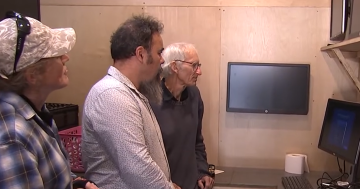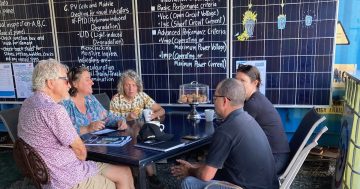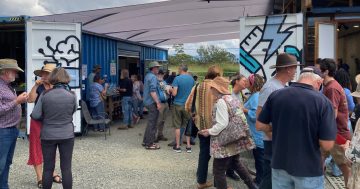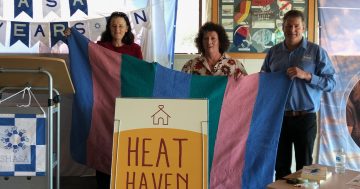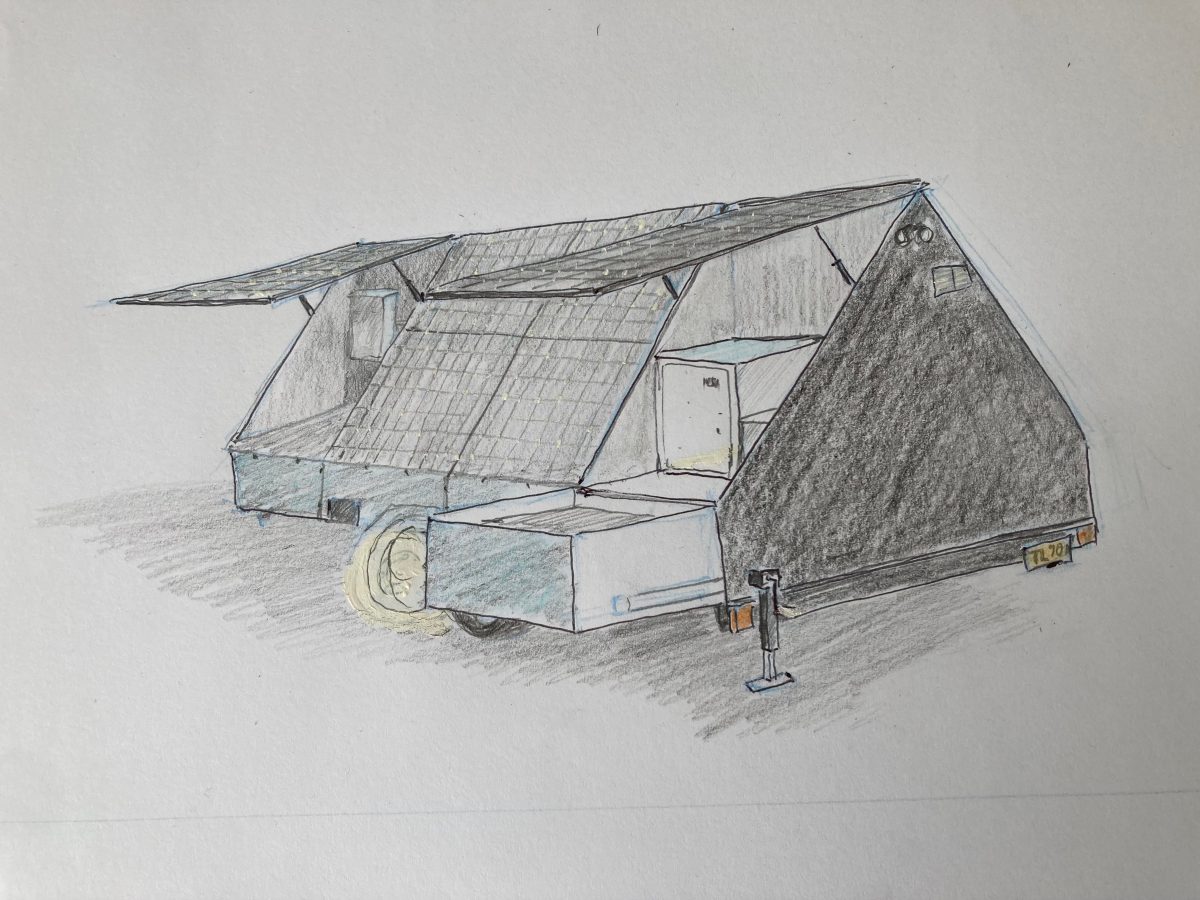
A sketch of the prototype mobile emergency power hub developed by Repurposing for Resilience Eurobodalla. Photo: Supplied.
Eurobodalla now has access to a mobile emergency power hub that can be rapidly deployed to provide reliable power and communications critical during natural disasters.
The community access solar power trailer is multifunctional and versatile. It is set up not only for emergency power applications but also designed for use in everyday life.
The trailer is the brainwave of community group Repurposing for Resilience Eurobodalla (RfR). RfR is launching the trailer on Friday, 30 August, at its solar reuse centre inside the Moruya Waste Transfer Station.
RfR founding member Lisa Cornthwaite said the Black Summer bushfires were the genesis for the trailer. “There were no established facilities for emergencies, no centralised evacuation areas, hubs or shelters. This initiative will make it easier for people to access basic facilities after extreme events.”
Initially the community set up a hub in Bodalla’s community hall to provide emergency response and assistance. “Over time it became clear that the community couldn’t access the hub easily so we had to find a way of bringing the hub to the community,” she said.

Jay Tiedt Freeman, Beau Cleary and Stephen Cornthwaite from Micro Energy Systems Australia (MESA) who volunteered their labour to build the prototype trailer. Photo: Supplied.
Early on, RfR expanded the trailer’s operations so it could be used for everyday life. One friend, for example, lives off the grid and the family regularly loses power and cannot get to school or work when there is heavy rain or storm events. The trailer would give them power and internet.
The trailer is just a prototype for now, “but if we can get it right and have one in every nook and cranny then people won’t have to travel to access assistance”, Ms Cornthwaite said. “We are trying to take a resource to the community in regional areas rather than expecting people to get to the resource.”
The five-metre dual axle trailer is lockable with secure storage areas. It has 3.5 kW of solar power, 12 kWh of battery storage and a back-up generator to charge the batteries during extended periods of low sunlight.
The pull-out kitchen has a two-burner gas cooktop, barbecue and fold-out bench and sink area, 60-litre fridge, 60-litre freezer, microwave, induction hot plate and cooking utensils. There is a hot water system, covered sleeping area with swags, and a first aid kit, plus communication facilities including radios and a satellite internet service.
The initiative has struck a chord with local businesses and community groups including Micro Energy Systems Australia (MESA), South Coast Health and Sustainability Alliance (SHASA), the Tec Exec, Tilba Plumbing, Moruya Signs and Whale Coast Realty that have supported it. It also secured funding from Monash University’s Fire to Flourish program, which supports community-led disaster recovery and long-term resilience.
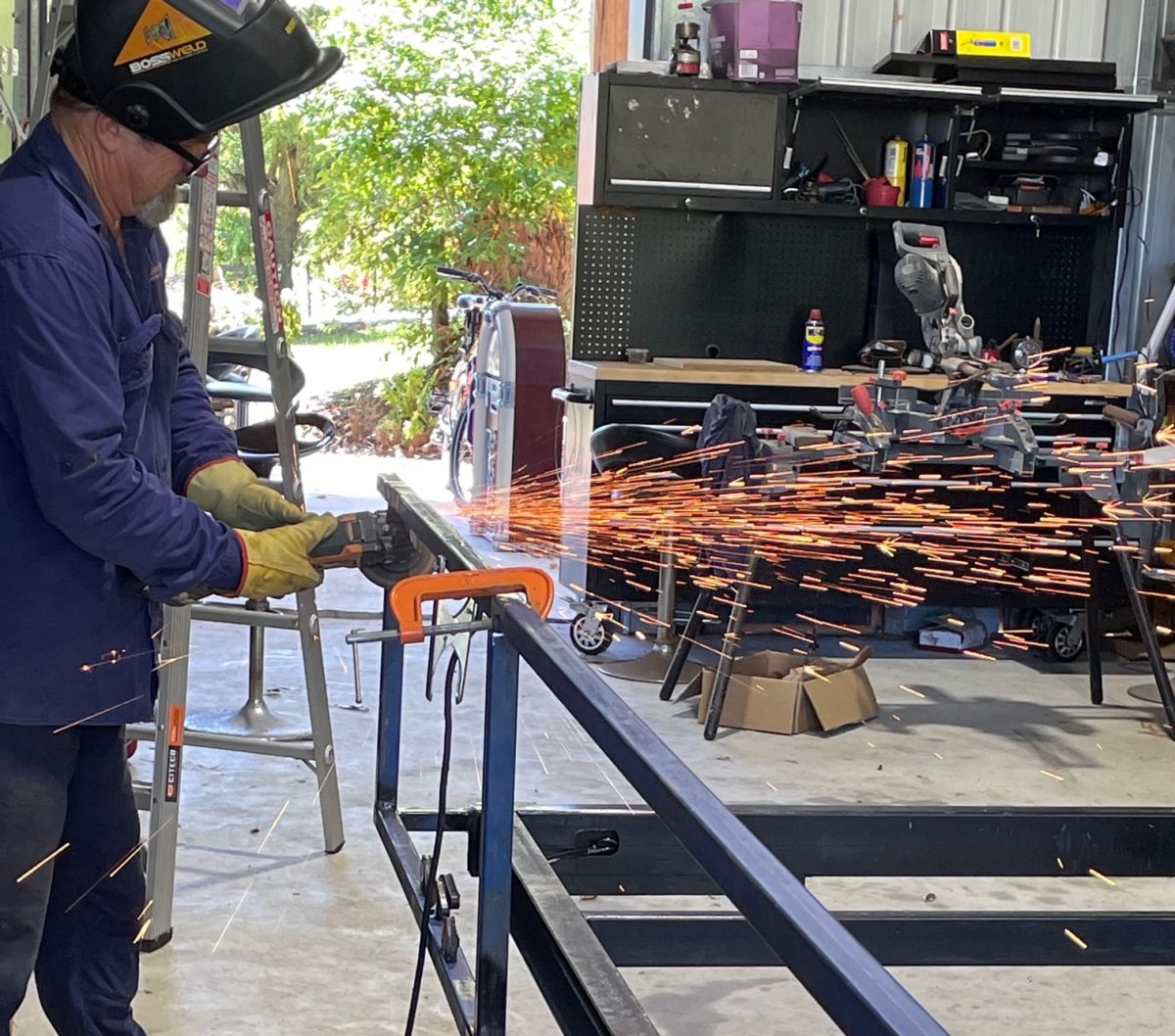
Stephen Cornthwaite welding the prototype mobile emergency power trailer. Photo: Supplied.
RfR has invited a cross-section of people to represent the community at the launch event, including emergency services, festival organisers, aged care providers, community organisations and local government agencies. It is seeking honest feedback on what the community thinks and any suggestions for changes.
One thing yet to be solved is a funding model, including the cost of maintenance. From there “we can see if we can find financial backing to turn out new and improved versions around the region”, Ms Cornthwaite said.
The group has a track record of thinking outside the box. It established electrical trade training on the Far South Coast so that apprentices need not travel outside the region to attend tech.
RfR also established a solar reuse centre that stops solar panels going to landfill. Instead, they test the panels for safety and remaining life, give them a warranty and resell them. All money raised goes back to the community through workshops and other initiatives.
“We have saved Eurobodalla Shire Council more than $13,000 in disposal costs in the short time we have been operating,” Ms Cornthwaite said. RfR will soon meet with surrounding shires to extend its free service.
RfR also has an exhibition space dedicated to artists using waste, promoting community involvement and creative thinking about the waste problem.
“The RfR is all about promoting a circular economy approach while addressing real community needs,” Ms Cornthwaite said. “We believe the community access solar power trailer will greatly benefit our local community and be a flagship for our efforts.”
There are two one-hour sessions on Friday 30 August, one at 10:30 am and one at 11:45 am at the Moruya Waste Transfer Station. RSVPs to [email protected] are essential.







